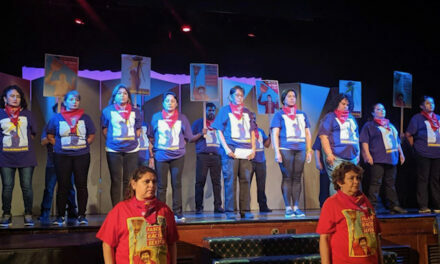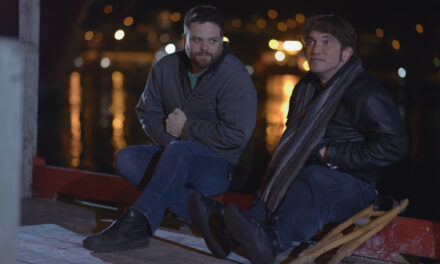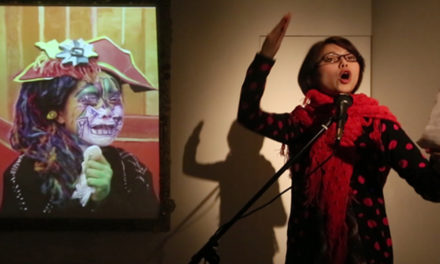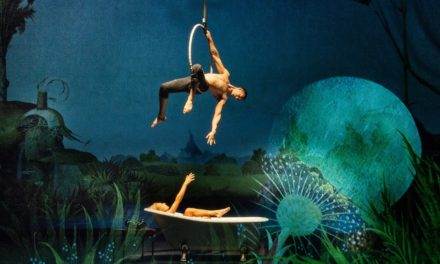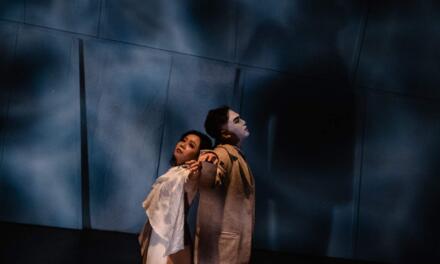The ninth edition of the Hakawy International Arts Festival for Children will include eight international and nine Egyptian performances, master-classes, workshops and a lot of fun.
This year’s Hakawy International Arts Festival for Children will take place in three cities: Alexandria (4-5 March), Cairo (7-15 March) and Minya (16 March).
Over the years, the Hakawy Festival put on by the company AFCA for Arts and Culture, has brought 55 companies and over 200 artists specializing in theatre for children from 15 countries and four continents to Egyptian audiences.
This year, the ninth edition of the festival is even bigger in its programming and stronger in its mission to become one of the major cultural events taking place on the Egyptian art scene.
Mohamed El Ghawy, the festival’s founder and artistic director, says this strategy aims at bringing the event to a larger audience while creating opportunities for local artists, as well as building up for the tenth edition to take place next year.
Given this, Hakawy’s ninth edition will offer eight international and nine Egyptian performances, the highest number to take place since the festival’s founding, and significantly more than the usual figures of four to five international and one or two Egyptian shows.
This year will see performances from the UK, Netherlands, Germany, Denmark, France, and the USA, in addition to the Egyptian shows, in different theatrical formats: object theatre, puppet theatre, black theatre, physical theatre, musical theatre, and modern dance.
El Ghawy is also expecting over 10 international delegates—festival and theatre directors—to attend Hakawy with an aim of developing possible future cooperations between Egyptian artists and their international colleagues.
A significant performance, and a new practice for Hakawy, will be the performance by the UK’s Bamboozle Theatre. Their show Storm targets children who are on the autistic spectrum.
According to the festival’s promotional material, Storm “uses elements of Shakespeare’s Tempest and weaves them into a dramatic sequence embracing the sea and ships, islands and magic, as well as using Shakespeare’s language.”
The company aims to deliver “memorable, multi-sensory experiences for children and young people with moderate to profound learning difficulties as well as those with emotional and behavioral difficulties.”
The event commemorates renowned puppeteer Nagy Shaker, who passed away last year.
El-Leila El-Kebira has been adapted many times, including in a version for the Cairo Opera Ballet Company created by Abdel Moneim Kamel in 2001, in which the puppets turn into live dancers.
During this year’s Hakawy festival, the original performance with captivating puppets will remind audiences of the iconic original show and show the young generation the best values of their country’s theatrical history.
The shows will take place across nine venues, including the Hanager Arts Center, the Tahrir Culture Center, venues in Historic Cairo, the Bibliotheca Alexandrina, the Jesuit Cultural Center, and the AUEED centre in Minya.
“The increased number of Egyptian performances gives us an opportunity to present the local productions to the international art practitioners, theatre and festivals managers, the delegates who will attend the Hakawy festival,” El Ghawy told Ahram Online.
“We want to provide a platform for the Egyptian theatre practitioners to present their work. Among our core mission elements is not to be limited to importing the art but also to serve as a creative exporter of the Egyptian theatre talents, performances and many values that they carry,” he said.
A few months ago El Ghawy released a call for international theatre managers to attend the festival. The initiative received a very positive response and the delegates are expected to form one of the essential components of the festival.
El Ghawy believes that this will be the beginning of large-scale cooperation with the international scene, which will have many benefits for the local artists.
One of the festival’s highlights is the Family Section, which aims at bringing children and their families to the shows.
“Hakawy is a family festival, even if we call it a ‘festival for children,’ for the sake of categorization and reaching out to the specific audience in Egypt,” said El Ghawy.
“Naturally, children come with their families (or schools). The Family Section is held during the weekends, to stress the need for families coming together. This is very important and carries a lot of values, many of which can impact lives of whole families and their communities.”
He explains that the Family Section provides art that is different from films such as Spider-Man or Harry Potter, which lead children to imitate the heroes’ skills, raising parental concerns about their safety.
“The Family Section allows the whole family to enjoy the show and feel secure about their children,” El Ghawy continues. “Having returned home, they will have many topics to talk about and bond together while developing bigger appreciation for, and interest in, the arts.”
As per the festival’s regular practice, AFCA organizes school trips for the students to attend the morning shows during weekdays, while families will be able to attend the performances during the weekends.
A number of workshops and additional activities will take place in parallel to the shows on stage. For the third consecutive year, the mobile library Stories On 4 Wheels will provide story-telling to the young audience.
With this ambitious programming, El Ghawy hopes to reposition the festival as well as AFCA for Arts and Culture, which he founded and manages, and which puts on many educational arts activities.
“I would not like to limit all Hakawy values to the days of the festival, an event which takes place once a year,” he said.
“AFCA has the capacity to create ongoing cooperation with the international artists, invite them to hold workshops throughout the year.”
“On the other hand, the local artists will have continuous benefits and opportunities to exchange ideas and develop. AFCA helps in the production of some shows, an activity which will be strengthened in the coming year,” El Ghawy said, pointing to a few of the many factors that testify to the Hakawy’s and AFCA’s expansion, all for the benefit of the local artists and the young audience.
This post was written by the author in their personal capacity.The opinions expressed in this article are the author’s own and do not reflect the view of The Theatre Times, their staff or collaborators.
This post was written by Ahram Online.
The views expressed here belong to the author and do not necessarily reflect our views and opinions.

